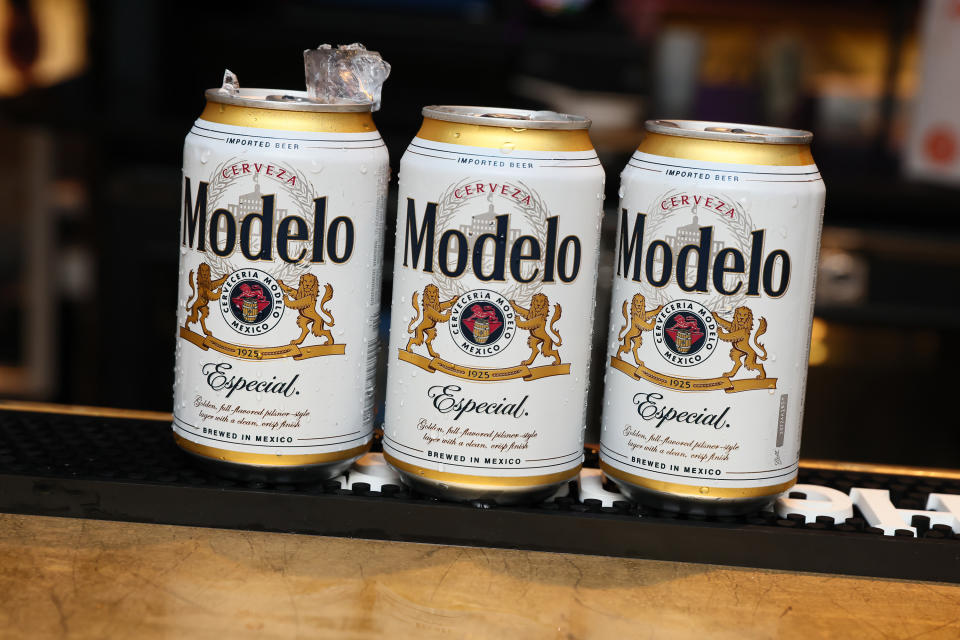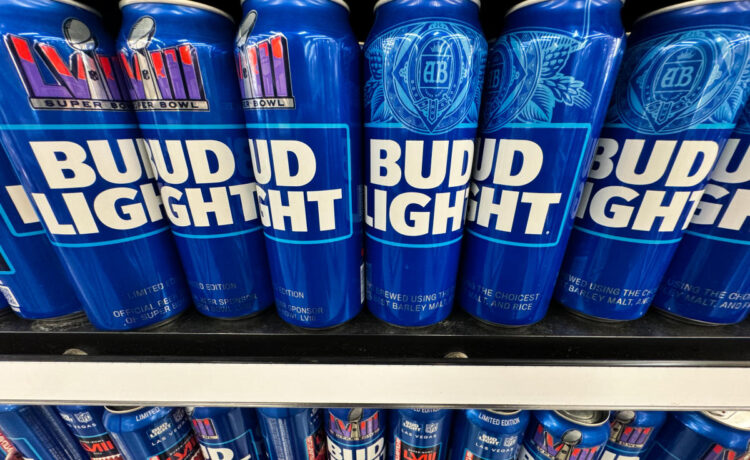While the beer industry has had an up and down 2023, trends for six packs are trickling into 2024.
With the dust still settling from the boycott against Anheuser-Busch InBev (BUD), players like Constellation Brands (STZ) and Molson Coors (TAP) will be jostling to gain more market share, while the Bud Light maker attempts a comeback.
Companies will also have to keep up with changing preferences like the switch to Mexican import beers (which are light lagers), canned cocktails, and non-alcoholic options.
“The Bud Light controversy… was probably the most important driver within the beer industry [in 2023],” Citi Vice President Filippo Falorni told Yahoo Finance. Domestic brands like Coors Light and Miller Light captured 80% to 85% of the share losses from Bud Light, he said.
In Molson Coors’ Q3 results, brand volumes in the US increased 4.5%, driven by double digit gains by Coors Light and Coors Banquet, and single digit growth by Miller Lite.
Constellation Brands (STZ), which owns beer, wine, and liquor brands, also emerged a winner.
On Friday, the company posted mixed quarterly results, with beer sales up 4%, boosted by demand for its Modelo Especial and Pacifico lines. The two Mexican imports were first and second in gaining market share for draft beers last year, CEO Bill Newlands said on a call with investors.
Corona Extra, which Constellation owns the rights to in the US, is the number one packaged beer sold on-premise, he said.
The beverage giant, and others with Mexican import brands, could make further headway this year, per Bump Williams of Bump Williams Consulting.
“We’ve already seen retailers in the back half of ’23 give more shelf space to these brands in this segment,” Williams told Yahoo Finance over the phone. “We’re going to continue to see that probably expand more as the spring sets get launched in March, April [2024].”


Others on the street seem to agree.
Cowen managing director Vivien Azer picked Constellation Brand as its best idea in 2024, “reflecting the strength and health” of the Modelo brand, which is “very popular” with younger drinkers, she told Yahoo Finance over the phone.
Goldman Sachs analyst Steven Kron also added Constellation Brands to its “23 most differentiated Buy recommendations.” The company is a “market share gainer with positive shareholder value inflection,” Kron wrote in a client note.
It’s a different story for Bud Light’s parent company Anheuser-Busch InBev, which saw North America volumes drop 17.1% year-over-year in its latest quarterly results.
The company also needs to negotiate a new contract with its brewery workers by Feb. 29. Teamsters at its 12 US breweries have voted to authorize a strike if an agreement cannot be reached.
But one bright spot for all brewers in 2024: lower input costs, with aluminum prices finally going down. US brewers will especially benefit from the change, Bernstein analyst Trevor Stirling told Yahoo Finance over the phone.
Other potential disruptors to the beer industry include flavored beverages, ready to drink cocktails, health and wellness trends, and the rise of tequila. Demand for alcoholic and non-alcoholic canned cocktails jumped 20% and 4%, respectively, over the past year, according to research by Veylinx.
Per Williams, Twisted Tea, a sweet tea whiskey drink, is gaining popularity, which could be good news for Boston Beer Company (SAM). Keep an eye out for an up and coming brand, Surfside Iced Tea, which could become an acquisition target.
High Noons and other flavor-based ready-to-drink cocktails like Cutwater (owned by Anheuser-Busch InBev), are still on a tear. These options are particularly attractive to light beer drinkers and young consumers, according to Williams.
The move towards non-alcoholic drinks is also on the rise, though such options only make up 3% of all sales currently, Williams said. Brands like Heineken 0.0 and Athletic Brewing Company could get more attention as the trend gathers more momentum.
Tequila is also having a moment. In a note to clients, Evercore ISI analyst Robert Ottenstein noted volumes for the liquor is seeing “notable” strength, up 7.2% as a category year-over-year. Diageo (DEO), which owns Casamigos and Don Julio, led the pack with a 15.7% volume growth.
And pour one out for the wine category, which dropped in both dollars sold and volumes in 2023, per Williams’ data.
Robert Mondavi and Woodbridge, both owned by Constellation Brands, have been “significantly losing share in a decelerating category,” Falorni said. The company now expects sales in its wine and spirits business to decline 7 to 9% in 2024.
—
Brooke DiPalma is a senior reporter for Yahoo Finance. Follow her on Twitter at @BrookeDiPalma or email her at [email protected].

















